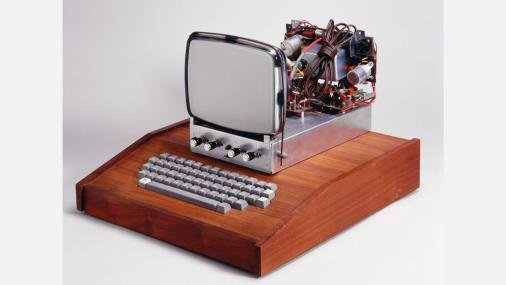What is the Full Form of Computer? Understanding Its Meaning and More

Computer is one of the most commonly used words in the modern world. But have you ever wondered what the complete form of COMPUTER is? Contrary to popular belief, “COMPUTER” is not just a random collection of letters. In this blog post, we will explore the complete form of COMPUTER, delve into its history, components, and functions, and answer frequently asked questions.
What is the Full Form of Computers?
The complete form of COMPUTER is a standard operating machine purposely used for technological and educational research. While this is a backronym rather than an official complete form, it provides a valuable way to understand a computer’s different functions and purposes. The word “COMPUTER” essentially captures its role in various fields such as technology, education, research, and more.
Brief History of Computers
Understanding the complete form of COMPUTER also requires a look at its history. The concept of computers dates back to ancient times when people used simple devices like the abacus for calculations. However, the modern computer, as we know it today, began to take shape in the 20th century. The 1940s saw the development of the ENIAC, the first electronic computer. Since then, computers have evolved significantly, leading to the powerful machines we use today.
The Components of a COMPUTER
Knowing the complete form of COMPUTER is only part of the story. A computer comprises several components that work together to perform various tasks. These components include:
- Central Processing Unit (CPU): Often called the computer’s brain, the CPU processes instructions and performs calculations.
- Memory (RAM and ROM): RAM (Random Access Memory) stores temporary data, while ROM (Read-Only Memory) stores permanent data.
- Storage Devices: Hard drives, SSDs, and other storage devices store data and software.
- Input and Output Devices: Keyboards, mice, monitors, and printers are essential for computer interaction.
Functions of a COMPUTER
The complete form of COMPUTER hints at its numerous functions. A computer performs several vital functions, including data processing, storage, retrieval, and transmission. These functions enable computers to perform simple calculations, complex simulations, and data analysis. Computers are essential tools in virtually every field, from business and healthcare to education and research.
Types of Computers
When discussing the complete form of COMPUTER, it’s essential to recognize the various types of computers available today. These include:
- Personal Computers (PCs): Desktops and laptops designed for individual use.
- Mainframes: Strong devices that big businesses employ to process enormous amounts of data in bulk.
- Supercomputers: High-speed computers used for complex computations and simulations.
- Embedded Systems: Specialized computers integrated into other devices, such as smartphones and home appliances.
The Role of Computers in Education and Research
The complete form of COMPUTER emphasizes its role in education and research. Computers have revolutionized the way we learn and conduct research. In educational institutions, computers are used for teaching, assignments, research, and accessing information. In research, computers play a vital role in data analysis, simulations, and developing new technologies.
Technological Advancements and Computers
The complete form of COMPUTER also reflects the technological advancements that have shaped our modern world. From the invention of the first transistor to the development of artificial intelligence, computers have been at the core of technological innovation. Advances in computer technology have led to the development of smartphones, tablets, and other smart devices that have become an integral part of our daily lives.
The Importance of Computers in Everyday Life
The complete form of COMPUTER reminds us of how integral computers have become in our daily lives. Computers are indispensable tools for communication, work, entertainment, or education. They help us stay connected with the world, perform work efficiently, and even manage our finances. Without computers, the modern world would be a very different place Full form of computer.
Future of Computers: What to Expect?
Understanding the complete form of COMPUTER can also help us envision its future. With ongoing advancements in fields like artificial intelligence, quantum computing, and machine learning, the future of computers looks incredibly promising. We can expect computers to become even faster, more efficient, and capable of performing tasks that were once considered impossible Full form of computer.
How to Choose the Right Computer?
Choosing the right computer depends on your needs when considering the complete form of COMPUTER and its various applications. For personal use, a basic laptop or desktop might suffice. However, a more powerful machine with a high-performance CPU, ample RAM, and a dedicated graphics card might be necessary for professional use, such as graphic design, video editing, or gaming Full form of computer.
Conclusion
While the complete form of COMPUTER is not officially recognized, it is an excellent way to understand this indispensable machine’s various functions and purposes. From their humble beginnings to becoming the backbone of modern society, computers have come a long way. As technology advances, their role will only grow more critical in shaping our future.